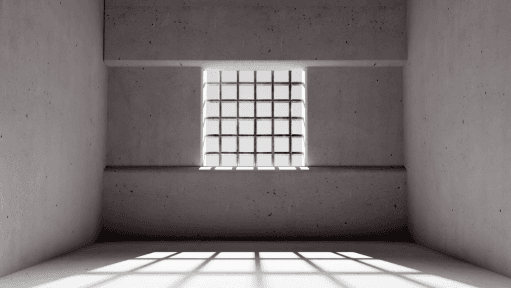
Alabama Nitrogen Gas Execution Sparks Intense Debate
The age-old debate surrounding capital punishment procedures has once again taken a dramatic turn in Alabama, United States, where the state has captured national attention by executing Kenneth Smith using nitrogen gas last Thursday.
The contentious issue of execution methods has long been a global concern, triggering debates over human rights, ethics and the constitutional legitimacy of such practices.
Smith, convicted in a 1988 murder-for-hire case, had survived a botched lethal injection attempt in the past. His case became a flashpoint in the heated debate over the perceived cruelty of executing individuals with nitrogen gas, prompting last-minute legal challenges to halt the execution. Despite sincere efforts by Smith's legal team, including appeals to federal courts and the US Supreme Court, the execution proceeded as planned.
The decision to employ nitrogen gas as an execution method reflects the challenges faced by states in obtaining the drugs required for lethal injections, leading to a quest for alternative methods. Alabama, along with Oklahoma and Mississippi, has greenlit the use of nitrogen gas for capital punishment. However, the procedure's specifics remain in secrecy, with Alabama’s protocol containing redactions to maintain security.
Nitrogen gas execution involves administering a concentrated dose of the gas through a mask, replacing oxygen in the body, and inducing death by disabling the respiratory system. Proponents argue that this method is more humane compared to other execution methods, with the potential for a quicker loss of consciousness. However, critics voice concerns about potential complications, such as the risk of oxygen leakage, vomiting into the mask, and prolonged suffering.
Convulsed for minutes
Breathing through a nitrogen-filled face mask that deprived him of oxygen, Smith convulsed in seizure-like spasms for at least two minutes of the 22-minute execution by nitrogen hypoxia, ABS News reported.
The force of his movements at times caused the gurney to visibly shake. That was followed by several minutes of gasping breathing until his breath was no longer perceptible.
Smith's supporters expressed alarm at how the execution played out, saying it was the antithesis of the state's promise of a quick and painless death. But Alabama's attorney general characterised the execution as “textbook” during a news conference.
“As of last night, nitrogen hypoxia as a means of execution is no longer an untested method. It is a proven one," Alabama Attorney General Steve Marshall said.
Asked about Smith’s shaking and convulsing on the gurney, Alabama Corrections Commissioner John Q. Hamm said they appeared to be involuntary movements.
“That was all expected and was in the side effects that we’ve seen or researched on nitrogen hypoxia,” Hamm said. “Nothing was out of the ordinary from what we were expecting."
Marshall said he anticipated Alabama "will definitely have more nitrogen hypoxia executions.” More than 40 death row inmates have selected nitrogen as their preferred execution method over lethal injection but did so at a time when the state hadn’t developed nitrogen procedures.
Attorneys for those inmates have asked the court to order Alabama to turn over records and information about Smith’s execution. Litigation will almost certainly focus on Smith’s convulsions and movements during the execution.
“The State promised the world the most humane method of execution known to man. Instead, Mr. Smith writhed and thrashed before he died. No further executions should take place by this method until the events of this evening are examined by an independent body,” Assistant Federal Defender John Palombi, who represents death row inmates who requested nitrogen, said in a statement.
Smith’s spiritual adviser, the Rev. Jeff Hood, agreed that the execution did not match the state attorney general’s prediction that Smith would lose consciousness in seconds followed by death within minutes.
“We didn’t see somebody go unconscious in 30 seconds. What we saw was minutes of someone struggling for their life,” said Hood, who attended the execution.
Dr Philip Nitschke, a euthanasia expert who designed a suicide pod using nitrogen gas and appeared as an expert witness for Smith, said the description of Smith's thrashing matches what he would expect to happen when nitrogen gas is used in a mask and someone holds their breath or takes the smallest possible breaths.
“I think this outcome is inevitable if the nitrogen gas is to be used in execution where people do not want to die and will not cooperate,” Nitschke said.
Concerns Mount
Kenneth Smith's execution has reignited questions about the constitutionality and ethical implications of nitrogen gas as a method of capital punishment. Human rights groups, legal experts, and United Nations officials have expressed concerns about the potential for torture and the risk of non-fatal injuries associated with this method. Additionally, the execution has triggered a broader debate over the use of capital punishment in the United States and its alignment with evolving standards of decency.
Beyond legal and ethical considerations, public opinion on social media has erupted with discussions about the morality of using nitrogen gas for executions. Many users have voiced outrage, labelling the method as inhumane and calling for a re-evaluation of capital punishment practices in the country.
Moreover, Alabama's embrace of nitrogen gas execution could have ripple effects beyond its borders, potentially setting a precedent for other states grappling with challenges in carrying out lethal injections. Adopting this method underscores the ongoing evolution of capital punishment practices and the complexities surrounding its implementation.
Alabama's use of nitrogen gas for executions introduces a new layer to the international discourse on human rights and the ethics of state-sanctioned executions. As the legal community grapples with the implications of the Alabama execution, the debate over controversial methods of capital punishment continues to evolve, reflecting broader societal attitudes towards inhuman punishment practices.
For any enquiries or information, contact ask@tlr.ae or call us on +971 52 644 3004. Follow The Law Reporters on WhatsApp Channels.